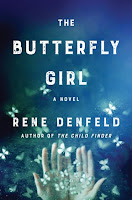My Rating: 4 stars
I recently got approved for an ARC of Elizabeth Strout’s
latest work Olive, Again, which is the sequel to her Pulitzer
Prize-winning Olive Kitteridge back from 2008. Seeing that
I don’t usually like to read sequels without first having read the original, I
decided to take a break from working through my miles-long ARCs list so that I
could get acquainted with Olive in preparation for tackling the sequel.
Despite having many of her books on my TBR, Elizabeth Strout is another famous
author whose works I’ve not had the chance to read yet (what can I say except
“too many books, too little time”), so I actually welcome the opportunity to
finally experience one of her works for myself.
Going into this, I will admit that I was a bit
apprehensive at first, since I had heard that this book is written in a unique
“novel in stories” format – that is, the book is comprised of 13 short stories,
all set in Crosby Maine, told from the perspective of different characters, yet
the stories are all linked together through the one character of Olive
Kitteridge. I’m usually not a fan of short stories, as I don’t like the
“abruptness” that the short story format naturally lends itself to – I prefer novels
with a full-length story that has a beginning, middle, and ending…a more
in-depth story that I can immerse myself into, with characters that I can watch
grow and develop over time. But of course, this book is not your
typical short story collection in that each story is connected through Olive, the
one constant who somehow manages to make her way into each story, oftentimes
subtly and unpronounced (except in the stories where she is actually the
central character). In some of the stories, Olive is a quiet
presence; in others, she is a force to be reckoned with – regardless of how she
may appear though, Olive’s distinctive “voice” as a character is strongly felt
throughout the book. I appreciate the interesting way Strout decided to
approach the character of Olive in here – even though she is not the main
character in most of the stories, we (as readers) still get to see her growth
and development as she grapples with the various situations that occur in the
town. Olive is an interesting character – definitely not the “tolerable”
type, and at times, she even comes across as downright annoying, but there was
a certain authenticity to Olive as a character that made her really come alive
for me despite her limited appearance in many of the stories. In terms of the writing, this was smoothly
and beautifully written, with what I felt was a solid balance of subtleness
versus fierceness where it was warranted. In the way Strout depicted the
mundane and the minutiae of everyday life while providing insight into the
trials and tribulations that many of us are bound to encounter, there was a
resonance to each of the stories presented here.
This was definitely a different reading experience for
me, one that I enjoyed immensely more than I expected. As I get ready to
tackle the sequel in the coming days, I look forward to revisiting Olive and
her “irrational sensitivities” once again.



